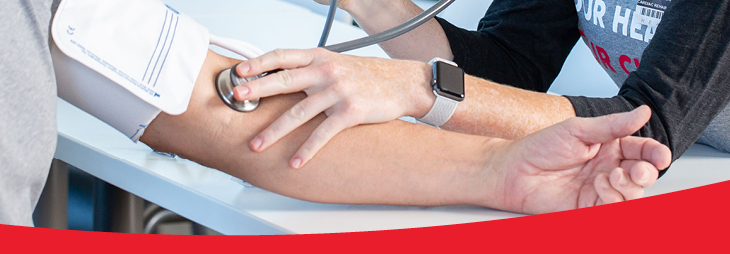
Because hypertension shows no warning signs, most people do not know they have it until it’s too late. What is high blood pressure (BP)? The American Heart Association, American College of Cardiology and American Society of Hypertension, the benchmark for optimum blood pressure control is 130/80 mmHg. It should be less than that in everyone.
Since the condition rarely has symptoms, doctors recommend investing in an over-the-counter blood pressure machine or cuff for the home. When checking your BP there are a few things you can do to ensure an accurate reading. Do not consume caffeine, smoke or participate in physical activity 30 minutes prior to checking. Rest for five minutes, and do not have your feet dangling or talk to a nurse if you are at a doctor’s office. If you don’t take those steps, your BP can be falsely increased by 10mmHg, which can result in a patient being over-treated. Seventy percent of blood pressure readings in doctor’s offices are inaccurate.
It is recommended to check your BP twice a day. Take the reading two hours after breakfast and one hour after dinner. The more you check it in a day, the more it will go up. Keep a record and take that to your physician. If it’s above 130/80 for three readings, you have hypertension and it must be treated.
Key facts on high blood pressure:
- Affects one in three adults worldwide
- Contributes to more than 1, 000 deaths per day
- When blood pressure is high, you are 4x more likely to die from a stroke and 3x more likely to die from heart disease
You might be wondering, “can I avoid, delay or reduce my need for medication?” The answer is yes, by following these 9 easy steps.
Our 9 easy steps:
- Maintain a healthy weight
- Limit alcohol consumption
- Reduce sodium intake
- Cut back on caffeine
- Exercise regularly
- Eat a healthy diet
- Manage and reduce stress
- Quit smoking or don’t start
- Monitor BP regularly
Want to learn more about our patient-centered, specialized cardiac care? Discover our wide range of cardiac care services or ask your primary care provider for a referral today.